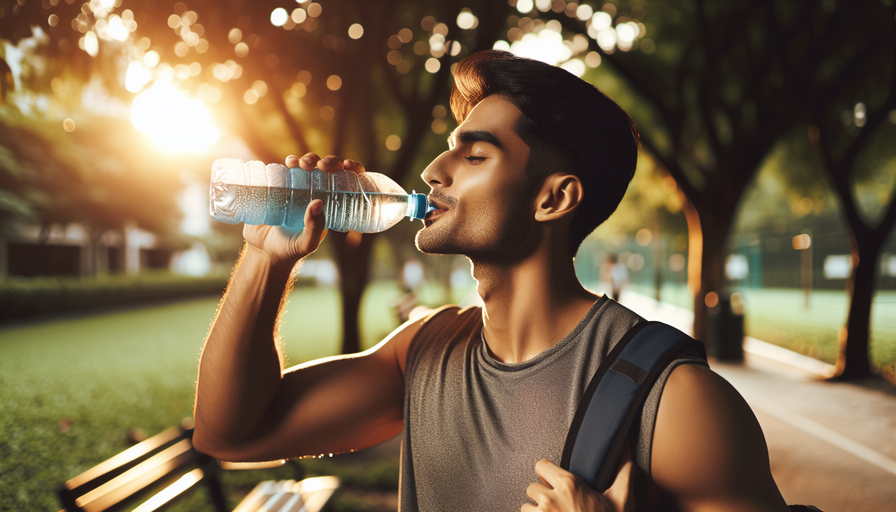Water Consumption 101: Tips for Staying Hydrated in Extreme Weather
Published:

Staying hydrated, particularly during extreme weather conditions, is crucial not only for survival but also for maintaining optimal health and wellness. Did you know that even slight dehydration can affect mood, energy levels, and mental function? With rising global temperatures and unpredictable weather patterns, understanding the essentials of water consumption can be a lifesaver. This guide dives into the fundamental tips for ensuring you're always well-hydrated, whatever the climate throws your way.
Understanding Your Hydration Needs
When it comes to "Water Consumption 101," the first goal is recognizing that hydration needs vary greatly depending on various factors such as age, gender, activity level, and the weather. For instance, an active adult engaged in outdoor activities during a heatwave will have different hydration needs compared to someone sitting indoors. Key tips include:
- Monitor Your Thirst: Pay attention to your body's signals. Thirst is a natural indicator that you need to increase your fluid intake. However, don't wait until you're thirsty to start hydrating.
- Consider Your Activity Level: Increase your water intake if you're more active or perspiring heavily. Activities like running or cycling demand more fluids, especially in hot weather.
Practical Hydration Tips for Extreme Weather
Water is not the only hydration tool at your disposal. Implement these strategies to maintain adequate hydration during extreme weather conditions:
1. Infuse Your Water
Sometimes plain water can be uninspiring. Boost your hydration by infusing your water with fruits like lemon, lime, or berries to enhance flavor and encourage you to drink more.
2. Hydrate with Food
Integrate high-water-content foods into your diet. Cucumbers, watermelons, and oranges are not only delicious but also help maintain hydration. This approach provides an added benefit of vitamins and minerals.
3. Establish a Routine
Create a drinking schedule to ensure consistent hydration throughout the day. Set reminders if necessary, and aim to drink a glass of water each hour or after every meal.
Recognizing Dehydration Signs
It's also crucial to be aware of the signs of dehydration to address them promptly. Symptoms like dry mouth, headaches, and fatigue can serve as early warnings that your body needs more fluids. Severe dehydration can lead to confusion, dizziness, and even heatstroke, highlighting the importance of vigilance, especially during scorching weather.
Conclusion
Maintaining proper hydration, particularly during extreme weather conditions, is essential for overall health and well-being. By listening to your body's signals, incorporating diverse strategies to meet hydration needs, and being mindful of environmental conditions, you can ensure your body stays balanced and functional. Enhance your hydration habits with the Sulak app, which simplifies tracking your daily water intake and helps you develop healthier hydration routines. Download Sulak here.
Implement these tips and listen to your body—your well-being depends on it. Here's to staying cool, refreshed, and ready to take on whatever the weather has in store!